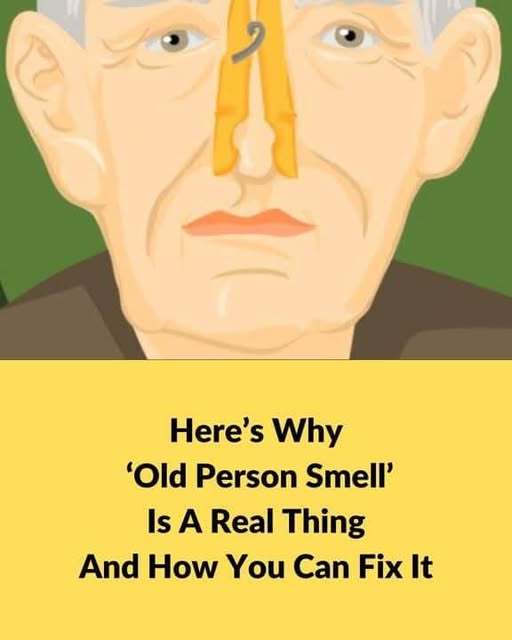
We love and respect our elders, but we know that along with wisdom, age brings other things. Physical changes in the elderly aren’t just about looks.
There’s a distinct body odor associated with aging, often called “old people smell”. Unflattering as the term is, science shows it’s real. You’ve likely smelled it – a musty scent with oily undertones, coming from the pores.
You might notice it at a relative’s home, in nursing homes, or in a grocery store line. But it’s not really about hygiene. Scientists say it’s caused by a compound named 2 – nonenal. As we age and hormones change, our skin produces more fatty acids.
Our antioxidant levels drop with age, so these fatty acids oxidize, creating high amounts of nonenal. It lingers on the skin even after washing, mainly emitting from the chest and back.
Some things can make the smell stronger: dirty laundry, enclosed spaces, and dehydration. Illnesses and medications can also play a part. A 2001 study in the Journal of Investigative Dermatology found that elderly people had more nonenal on their clothes.
A 2012 study suggests that our ability to distinguish this smell might be linked to a subconscious ancestral connection, similar to how animals sense age and health by odor.
The Japanese call this smell “kareishu”, and many Japanese companies have made products to combat it, like perfumes, body washes, and deodorizers. Some claim an ingredient, persimmon, can remove the smell from the skin.
There are ways to reduce the skin – based odor. Exercise boosts metabolism, helping balance hormones and lower stress. Regularly washing clothes is also crucial as nonenal builds up on them quickly. Eating a healthy diet rich in antioxidants and drinking enough water benefits the skin. Dehydration not only dries the skin but also causes mouth and body odors.
Hygiene is important, and one simple thing is to let in fresh air. Aging is inevitable, and body changes are natural. But showing elders compassion, respect, and love never goes out of style.
Does this familiar odor bother you? Were you aware of the scientific reason? What’s your take on products that might counter nonenal’s effects?